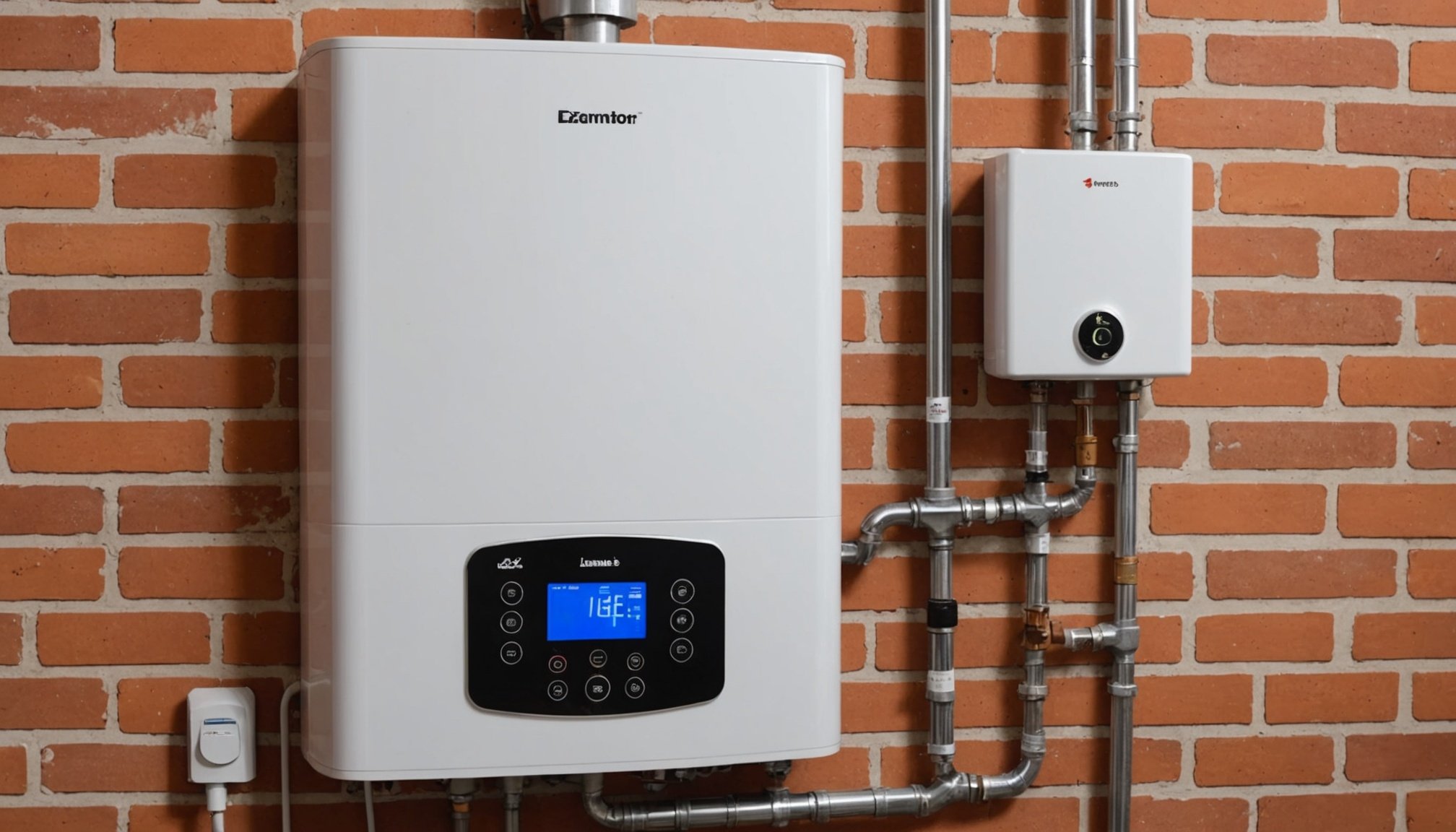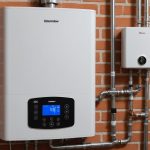When it comes to heating water in your homes, the range of options can be overwhelming. From gas boilers to electric heaters and air-source heat pumps, you’re spoilt for choice. However, it’s important to ascertain the efficiency, not just from an environmental standpoint, but also from the perspective of costs and energy savings. So, what exactly is the most efficient method of water heating in a UK household? Let’s explore.
Gas Boilers: The Traditional Workhorse
Gas-fired boilers have long been the cornerstone of the UK’s heating system. Their longevity and popularity are down to their reliability, cost-effectiveness, and the ubiquity of natural gas supply. However, are they the most efficient?
A voir aussi : Creating a Vibrant Vegetable Garden in Your Cozy Sunderland Front Yard: Tips for Small Space Integration
A typical gas boiler efficiency ranges from 89% to 95% – quite commendable, but there are other factors to consider. The carbon footprint of gas boilers is significant, and they could cost you more in the long-term due to potential repairs and maintenance. Moreover, the UK government plans to phase out gas boilers in new homes by 2025, signalling a shift towards greener alternatives.
Electric Heaters: The Simple Solution
An electric heater is an easy-to-install, low-maintenance option for water heating. Unlike gas boilers, they don’t need a flue or a gas supply, making them convenient for flats, small homes or off-grid properties.
Lire également : Revitalize Your UK Home: A Step-by-Step Guide to Restoring Victorian Era Cornices
However, while these heaters offer 100% efficiency at the point of use, the broader picture isn’t as rosy. Electricity production in the UK still relies heavily on fossil fuels, which means the carbon footprint of your electric water heater may be higher than you think. Furthermore, electricity prices are generally higher than gas, so running costs could be substantial.
Air Source Heat Pumps: The Green Giant
Air source heat pumps (ASHPs) are emerging as a powerful contender in the quest for efficient water heating. These systems absorb heat from the outside air to heat your water and your home.
ASHPs can provide heating even when the outside temperature is as low as -15°C. Moreover, they are extraordinarily efficient, turning each unit of electricity into three or four units of heat. Coupled with their low carbon footprint, ASHPs are becoming increasingly popular.
However, the initial costs for these systems can be substantial, ranging from £6,000 to £8,000. It is crucial to ensure your home is thoroughly insulated to maximize an ASHP’s efficiency.
Solar Water Heaters: Harnessing the Sun
Solar water heaters are another sustainable option for heating your water. They harness the power of the sun, converting sunlight into thermal energy to heat your water.
Solar water heaters are incredibly efficient during the summer months but can struggle in the winter. Hence, they are often used in conjunction with a boiler or an immersion heater. The initial investment can be steep, but the long-term savings and the negligible carbon footprint make them an attractive option.
Ground Source Heat Pumps: Digging for Heat
Ground source heat pumps (GSHPs) are similar to air source heat pumps, but instead of absorbing heat from the air, they extract it from the ground. These pumps are highly efficient, providing three to four units of heat for every unit of electricity used.
GSHPs have a low carbon footprint, making them an environmentally friendly option. However, they are more expensive to install than ASHPs and require substantial space for the installation of the ground loop. Also, like ASHPs, your home needs to be well-insulated to maximise a GSHP’s efficiency.
As we have explored, the choice of the most efficient water heating method depends on several factors, namely costs, carbon footprint, and property suitability. While gas boilers and electric heaters are traditionally popular, the potential savings, both in terms of money and carbon emissions offered by heat pumps and solar water heaters, make them compelling contenders. As the UK government continues to incentivise greener alternatives, it is likely that these modern, highly efficient systems will become increasingly popular in the coming years.
Biomass Boilers: The Renewable Alternative
A biomass boiler is one of the most environmentally friendly methods of generating heat. This type of heating system burns organic materials, typically wood pellets, chips or logs, to produce heat. Biomass boilers can be used to heat a single room or power central heating and hot water systems in your home. They are highly efficient, with newer models reaching efficiencies of up to 90%.
Biomass boilers are a low-carbon option since the CO2 released when wood is burned is offset by the amount absorbed by the tree during its lifetime. Therefore, if the wood is sourced locally and responsibly, the carbon emissions can be minimal. However, it’s important to note that these heating systems require more space than conventional boilers and can be more expensive to install and run.
Biomass boilers can be an excellent match for off-grid homes or properties with a plentiful supply of wood. However, for them to be truly energy efficient, it’s essential to ensure your home is adequately insulated.
Hybrid Systems: The Best of Both Worlds
Hybrid heating systems, or integrated systems, combine a heat pump with a gas or biomass boiler. These systems allow homeowners to switch between different energy sources, depending on which is the most cost-effective or environmentally friendly at any given time.
During milder weather, the air source or ground source heat pump operates as the primary heat source. When the temperature drops, the system switches to the boiler. This combination ensures that homeowners can enjoy the benefits of heat pumps, like lower carbon emissions and cheaper running costs, without worrying about their effectiveness in colder weather.
Despite their advantages, hybrid systems do require a larger initial investment than other heating systems. However, their increased efficiency and flexibility can lead to significant savings on energy bills and carbon emissions in the long term.
Conclusion: Finding the Most Efficient Water Heating Method for Your Home
In conclusion, the most efficient method of water heating in a UK household is not one-size-fits-all. It depends on a myriad of factors, such as the size and insulation of your home, your budget, and your environmental priorities.
Traditional methods like gas boilers and electric heaters remain popular due to their affordability and familiarity. However, the growing focus on reducing carbon emissions and increasing energy efficiency is steering many homeowners towards alternatives such as heat pumps, solar water heaters, and biomass boilers.
Future trends seem to favour the adoption of renewable and low carbon technologies for heating homes in the UK. Regardless of the method you choose, remember that the efficiency of your heating system can be maximised with proper insulation, regular maintenance, and sensible usage habits. It’s also worth noting that the UK government offers several incentives to encourage the adoption of more efficient and environmentally friendly heating systems.
So, before making a decision, consider all the options, weigh their pros and cons, factor in your specific needs and circumstances, and choose the most efficient method of water heating for your home.











